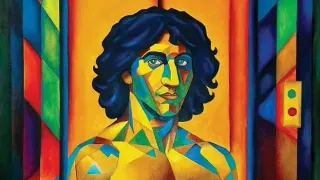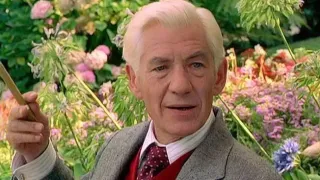
Oct 5
Charlie Hunnam Reveals His Father Questioned His Sexuality After Landmark “Queer As Folk” Role
READ TIME: 3 MIN.
British actor Charlie Hunnam, known globally for his roles in “Sons of Anarchy” and the recent hit “Monster,” first captured public attention as a teenager in Russell T Davies’s provocative 1999 drama “Queer As Folk” . The series, widely considered a watershed moment for LGBTQ+ representation on British television, cast Hunnam as Nathan Maloney—a 15-year-old coming to terms with his sexuality. The show’s frank portrayal of queer relationships, intimacy, and identity was unprecedented in mainstream UK media, igniting both acclaim and controversy.
In recent interviews, Hunnam has spoken candidly about the personal ramifications of his role in “Queer As Folk.” He revealed that after the series aired, his father directly asked him if he was gay . Hunnam explained, “My dad was a tough guy, very traditional. He just wanted to know. He said, ‘Are you gay?’ I told him, ‘No, Dad, I’m not, but if I was, would it really matter?’” .
This moment, Hunnam recounted, was pivotal—not only for their relationship but also as a reflection of broader societal attitudes. The actor emphasized that his father’s question stemmed not from malice, but from a generational gap in understanding. “I think he was just trying to get his head around it. For people of his generation, seeing your son in that type of role was a lot to process,” Hunnam added .
“Queer As Folk,” created by Russell T Davies, was a cultural milestone. Its candid depiction of queer life, sex, and relationships marked a radical departure from the coded or stereotypical portrayals that had previously dominated television . Hunnam’s portrayal of Nathan—a young gay man navigating coming out, first love, and prejudice—was both groundbreaking and controversial. The series drew both criticism and praise for its explicit content, but it also provided affirmation and visibility for queer audiences who rarely saw themselves authentically represented on screen .
For Hunnam, the role was career-defining, shaping his trajectory as an actor unafraid of challenging material. In interviews, he has acknowledged the impact “Queer As Folk” had on his life and the lives of viewers: “I get people coming up to me all the time saying it was the first time they saw themselves on television. That means everything to me” .
Hunnam’s story underscores enduring issues faced by actors who take on LGBTQ+ roles. For many, portraying queer characters can lead to questions about their own sexuality—both from the public and from those closest to them. This phenomenon is not unique to Hunnam; it reflects a persistent cultural association between on-screen and off-screen identities, revealing the challenges of breaking down stereotypes and fostering genuine understanding.
LGBTQ+ advocates note that Hunnam’s experience is emblematic of why visibility in media matters. When actors bring authenticity to queer roles, they help dismantle stigma and broaden the conversation about what it means to be LGBTQ+—both for queer people and the wider public. As GLAAD, a leading LGBTQ+ advocacy organization, has repeatedly emphasized, “Authentic representation on screen leads to greater acceptance in real life” .
Since the original airing of “Queer As Folk,” LGBTQ+ representation in media has grown, but challenges remain. Today, there are more queer characters and storylines on television than ever before, yet questions about typecasting, tokenism, and the safety of out actors persist . Hunnam’s openness about his experience highlights the need for ongoing dialogue—both within families and in the entertainment industry—about acceptance and the importance of diverse narratives.
For viewers who saw themselves reflected in Nathan’s journey, and for those still seeking representation, Hunnam’s story is a reminder of the power of visibility and the personal courage required to tell stories that challenge the status quo. As society continues to grapple with issues of identity and acceptance, the lessons of “Queer As Folk”—and the conversations it sparked—remain as relevant today as they were more than two decades ago.






